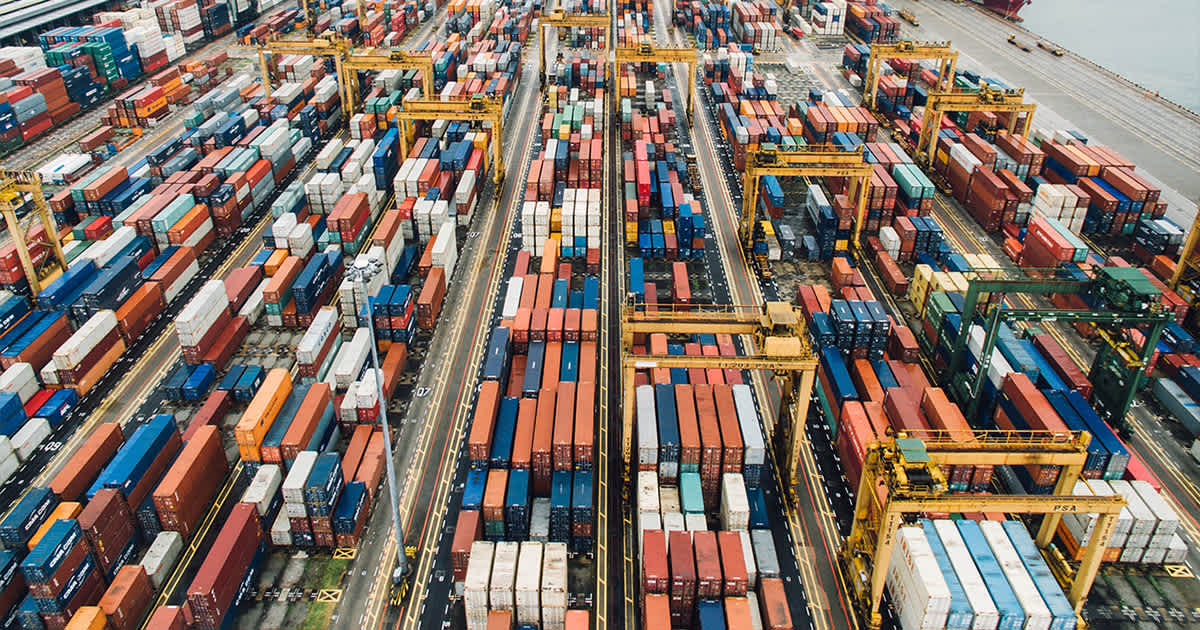Chinese New Year shapes supply chains
Reading Time: 8 min.

How the Chinese holidays affect the global supply chain and how you can keep track of all the dates with our calendar.
Work hard, play hard? Not quite: we reveal how the Chinese holidays affect global supply chains, how you can avoid delivery delays and also how you can keep track of all the important dates with our downloadable calendar.
Chinese New Year 2022
On 1 February 2022, the Chinese New Year, the country's most important holiday, begins. Or the Year of the Water Tiger. Traditionally, the New Year lasts 16 days. By law, the Chinese have a total of 7 days off from 31 January to 6 February.
As the New Year is a typical family celebration, many Chinese visit their relatives who usually live far away. It is not uncommon for the entire holiday entitlement of a year to be saved up for this purpose. Generally, preparations begin about two weeks before the actual date. The final event is the Lantern Festival on 15 February, when lanterns of all shapes and sizes are hung from trees or on the riverbank.
Logistics affected for at least a week
Every year, Chinese New Year puts a significant strain on delivery capacities to and from China and East Asia. This is because most logistics branches are closed for at least a week, while factories and production facilities usually take even longer breaks.
So place your bookings and orders as early as possible to avoid delays. Or build up a larger stock than usual to be able to reliably supply your customers around the time of Chinese New Year.
Other holidays and the Golden Week
Although less than Chinese New Year, other holidays also influence productivity in China. For example, the Chinese take a three-day break during the Dragon Boat Festival from 3 June 2022 - it is celebrated not only in China but also in Hong Kong, Macau and other parts of the world. Similarly, the Qingming Festival (Remembrance of the Dead Festival) is a traditional holiday celebrated from 4 to 6 April. And from 30 April to 4 May, the Chinese take a 5-day break around Labour Day.
Golden Week, on the other hand, is a week-long holiday week in China. It begins with the National Day on 1 October and lasts until 7 October. During this period, almost all shops, factories and government institutions are closed or staffed with very limited personnel. As airports, seaports and warehouses are also operating at limited capacity and customs offices are closed, significant restrictions on logistics are to be expected.
It is best to plan your bookings and orders well in advance of the Golden Week. You should bear in mind that the peak season already begins 3 to 4 weeks before the official holidays.
What you should always bear in mind:
The extended Chinese holidays can lead to delivery delays of up to one month
Due to the numerous closures, there may be no production from China for at least a week
Even if production slowly starts up again, operations will not immediately resume at maximum capacity
Before the holidays, there may be a big rush on logistics and freight companies
After the holidays and festivities, it will take some time for everything to return to normal levels
We are also there for you during Chinese holidays
Line Up offers you not only access to an Asian network and reliable suppliers in China, but also organises the production of the goods for you, including the logistics to your company headquarters in Germany or Europe. With early planning and many years of experience, we master all the hurdles that can arise along the global supply chain. And it goes without saying that we master any delays caused by Chinese holidays for you.
Would you like to keep an eye on the most important dates yourself? Then download our calendar for the "Year of the Tiger" with numerous tips now and always stay up to date!
Newsletter Registration
Sign up now for our free Line Up newsletter and stay up to date.





